-
Benefits of Intraocular Lenses
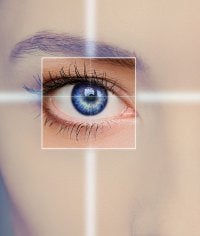 If you are one of the many people who rely on glasses or contact lenses in order to see clearly, you may have resigned yourself to the fact that you will always need these assistive aids. You may have even asked your eye doctor in Chicago about LASIK eye surgery, only to be told that you aren’t a good candidate for the procedure. If you are nearsighted, you may have another option. Intraocular contact lenses (ICL) work with the eye’s natural lens to improve vision without the hassle of glasses or external contact lenses. Visian ICL offers predictable and stable results, with an excellent quality of vision following the procedure. The implantation itself is relatively simple, as the lens is inserted through a very small incision. You won’t be able to see the lens once it’s implanted, and you won’t have to do anything to maintain it. Whether your myopia is mild or severe, ICL may be an option for you. Though removal shouldn’t be necessary, intraocular contact lenses are removable if the need should arise in the future.
If you are one of the many people who rely on glasses or contact lenses in order to see clearly, you may have resigned yourself to the fact that you will always need these assistive aids. You may have even asked your eye doctor in Chicago about LASIK eye surgery, only to be told that you aren’t a good candidate for the procedure. If you are nearsighted, you may have another option. Intraocular contact lenses (ICL) work with the eye’s natural lens to improve vision without the hassle of glasses or external contact lenses. Visian ICL offers predictable and stable results, with an excellent quality of vision following the procedure. The implantation itself is relatively simple, as the lens is inserted through a very small incision. You won’t be able to see the lens once it’s implanted, and you won’t have to do anything to maintain it. Whether your myopia is mild or severe, ICL may be an option for you. Though removal shouldn’t be necessary, intraocular contact lenses are removable if the need should arise in the future. -
Why Choose Visian ICL Intraocular Lenses?
Why Choose Visian ICL Intraocular Lenses?
If you’re tired of wearing contact lenses and eyeglasses, then your ophthalmologist in Chicago may recommend treatment with intraocular lenses. Keep reading to learn why you should consider Visian ICL for your intraocular implants .
Simple Procedure
Visian ICL is a quick and painless vision correction procedure. Also, it is minimally invasive, in part because the Visian ICL Collamer material allows for easy insertion of the intraocular lens. After numbing your eyes, your ophthalmologist can perform the procedure quickly, and you can expect the appointment to last for just half an hour or less. Also, the fact that Visian ICL is minimally invasive allows for patients to enjoy a quick recovery time. This means that if you choose Visian ICL, then you can look forward to resuming your normal activities, but with clearer vision, after only a few days.
UV Protection
Did you know that it’s important to protect your eyes from UV rays? UV radiation can harm your eyes and is associated with eye problems like photokeratitis, cataracts, and macular degeneration. Happily, patients who chooseVisian ICL for their intraocular implants can benefit from better UV protection for their eyes. The implant’s Collamer material gives Visian ICLs unique, UV protection qualities. After being gently inserted into the eye, a Visian ICL allows natural visible light to pass through, but at the same time creates a barrier of UV protection.
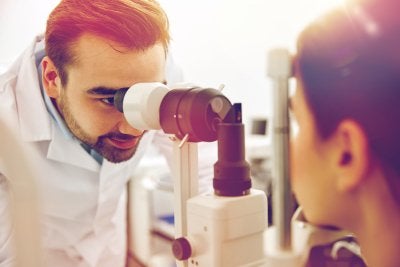
Great Results
Patients who choose Visian ICL for their intraocular implants can rest easy knowing that, should they have a significant change in prescription, their Visian ICL implants are completely removable. This feature also allows you to change your prescription as needed and take advantage of future advances in vision correction technology. Additionally, Visian ICL can correct and reduce high nearsightedness and is an option for many patients with thin corneas, meaning that this procedure can be suitable for many patients who aren’t candidates for other corrective options. Finally, many patients experience fast results and enjoy improved vision immediately after their procedure.
-
Comparing Monofocal and Multifocal IOLs
Your options for cataract treatment in the Chicago area include monofocal and multifocal intraocular lenses (IOLs). During cataract surgery, the eye doctor removes the cloudy natural lens of the eye and replaces it with one of these types of intraocular implants. Most often, doctors implant monofocal IOLs. This type of lens is engineered to help patients focus at one distance—near, medium, or distance vision. Patients usually opt to have the lens provide clear distance vision. They will then use reading glasses for up-close work.
Multifocal lenses are more complex. This IOL features different zones, each with its own focusing power. In other words, multifocal lenses offer both near and distant focusing capabilities simultaneously. They work in a similar way as bifocal or multifocal contact lenses. Multifocal lenses are ideal for people who do a lot of reading or other close work, and who aren’t enamored of the idea of using reading glasses frequently.
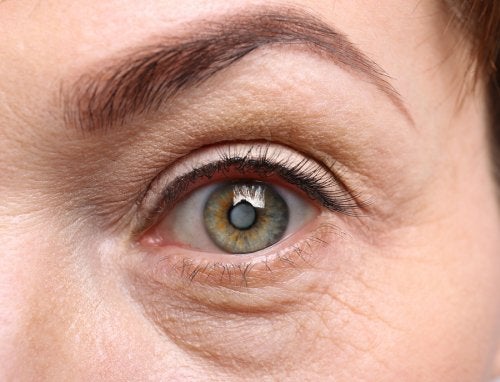
-
What Patients Should Know About Cataract Surgery
Some people can’t even touch their eyeballs, so the prospect of cataract surgery near Chicago might seem a little scary at first. Do a little research about the process , and talk to your cataract surgeon so that you know what to expect. This can help you prepare, which can then make you more comfortable. You should know why cataract surgery is important, how to get yourself ready, and what you’ll experience when you meet with your eye doctor. Here’s a closer look at what patients should know about cataract surgery.

Reasons You Should Deal with Cataracts
Just like on a camera or a microscope, the lens of your eye helps you focus an image so that you can see it clearly. When you develop cataracts, however, the lens clouds up and becomes blurry. This can be distracting and takes away from your ability to appreciate a beautiful sight, so it may significantly impact your quality of life. There are steps you can take to gain your vision back, and your eye doctor may recommend cataract surgery. This procedure can restore clarity and color to your vision so you can enjoy life’s scenery the way you always have.
How to Prepare for Surgery
Before you get started with cataract surgery, your eye doctor will explain how intraocular lenses—or IOLs—work and what to expect when you go in for treatment. He or she will need to take measurements in order to create the right IOL, and you will need to tell your eye doctor about any medications that you’re currently taking. In some cases, you might have to refrain from taking these medications for a certain period of time.
What the Procedure Is Like
You might need to refrain from eating prior to cataract surgery. After numbing your eye, your doctor will carefully cut near the cornea to access the lens. The goal is to break down the cataract and replace the lens with an IOL. Your incisions should heal on their own, so you most likely won’t need stitches. After about a half hour in the recovery area, you can leave.
-
Spotlight on Helen Keller Deaf-Blind Awareness Week 2017
There are people in the world who face extreme obstacles daily, and many of us can’t even imagine the struggles they go through. Helen Keller is an excellent example of someone who combatted serious handicaps in both deafness and blindness, and there is much to learn from her story. While a cataract surgeon or eye doctor in Chicago will have intimate knowledge of blindness, most people have a great deal to learn. Keep reading as we put the spotlight on Helen Keller Deaf-Blind Awareness Week 2017.
No matter how well our intentions may be, we can only focus our efforts on solving a problem after we’ve become aware of it. Most people over a certain age understand what deafness and blindness are, but there is much more to learn about these conditions. When you go about your daily life, you might not think about what your normal routine would be like without one or more of your senses. The purpose of Helen Keller Deaf-Blind Awareness Week is to take a week out of each year to discuss the presence of deaf-blindness in families within our communities so we can all widen our perspectives.
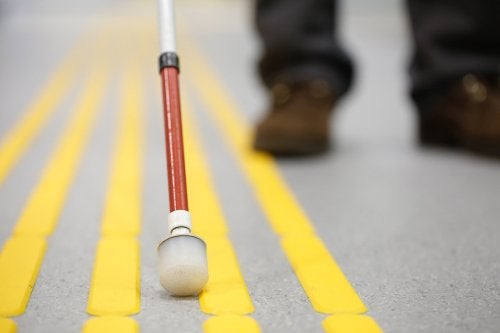
-
Eye Protection for Tennis Players
If you play tennis or plan to learn how, it’s time to schedule an appointment with an ophthalmologist. At an optical center in Chicago, you can learn about the specific risks associated with tennis, including eye injuries that may cause vision loss. Your ophthalmologist can recommend protective eyewear specifically for tennis. He or she will ensure that your eyewear fits you properly for maximum protection.
For more tips on eye care and injury prevention, watch this video. The eye doctor featured here explains that the polycarbonate lenses found in protective eyewear can block projectiles such as tennis balls, even when these objects are traveling at up to 90 miles per hour. She also discusses the importance of ultraviolet (UV) protection to guard against cataracts, lesions, and tumors.
-
What You Can Do to Avoid Eye Injuries in the Workplace
Workplace incidents are a common cause of eyes injuries treated by ophthalmologists near Chicago . In fact, about 2,000 workplace eye injuries occur daily in the U.S., and most of these are caused by small, falling, or flying objects. To avoid being among these statistics, consider the following tips for avoiding eye injuries in the workplace:

Promote a Safe Work Environment
Creating an environment in which accidents become less likely is the first step towards reducing the chances of eye injuries. To do this, ensure that all tools and equipment are working properly and that all necessary safety features are functional and in use. Next, inspect the area for unstable objects and similar hazards and remove or repair these. Also, ensure that bystanders remain out of hazardous areas, and that staff members know how to use every tool correctly.
Check Your Worksite Regularly
Checking your workplace once isn’t sufficient for preventing injuries long-term, so schedule regular evaluations. Inspect your work areas and identify hazards from machinery, falling or moving objects, and other workers. After evaluating any safety hazards, take action to eliminate or minimize them.
Wear the Right Equipment
Most workplace eye injuries occur where the use of safety eyewear is not required or is optional, and many people end up having to visit an eye doctor because they chose not to wear protective eyewear or used it improperly. Start by selecting the right protective eyewear for your worksite. Then, always check that the eyewear is in good condition before each use. Finally, ensure that protective eyewear fits properly and stays securely in place while you work.
Adhere to Smart Safety Practices
Before removing your protective eye gear, you should shake, brush, or vacuum away any dust or debris that may have accumulated on your head, forehead, or hardhat. Also, never rub your eyes with dirty clothing or hands. Finally, clean your protective eyewear regularly. Following these steps is a smart way to practice good eye care and avoid a trip to an eye doctor because of an injury.
-
Answering Common Questions About Intraocular Implants
Are you planning to see an ophthalmologist about getting intraocular implants in Chicago ? If so, then you could benefit from knowing more about this type of eye surgery. Read on to learn the answers to common questions about intraocular implants.

What are intraocular implants?
Sometimes referred to as intraocular lenses (IOLs), intraocular implants can be thought of as permanent contact lenses. However, instead of sitting on top of the cornea, an IOL is implanted in the eye and can be used to treat refractive errors or cataracts. An intraocular implant can replace your eye’s natural lens after it is removed during cataract surgery, or it can work with your eye’s natural lens to improve its focusing power and enhance your vision.
What are the benefits of intraocular implants?
Intraocular implants provide a solution for poor vision that can eliminate the need for wearing eyeglasses or contact lenses. IOLs offer great performance and excellent quality of vision along with stable and predictable results. Also, the procedure is simple, requiring just one operation through a microincision and no additional maintenance. Intraocular implants can address many levels of nearsightedness and can be removed later if needed.
What happens during intraocular implant surgery?
The procedure is usually performed on an outpatient basis, and your ophthalmologist will surgically place the lens in your eye. For cataract surgery, the clouded lens is removed, and then the IOL is put in place. The procedure takes only a short amount of time, and the full recovery period is usually about a month.
What is Visian ICL?
Visian ICL is the first intraocular implant of its kind to receive FDA approval for use in the United States. The ICL lens is made from Collamer, which is a soft and flexible material that provides unmatched biocompatibility. Visian ICL can be used to treat a wide range of refractive errors. If you have been turned down for LASIK and other surgical eye procedures, then ICL surgery may offer you a solution for improving your vision.
-
Preserving Your Eyesight After Being Diagnosed with Glaucoma
While eye care is important at all stages of life, it becomes even more critical after being diagnosed with glaucoma. If your eye doctor in Chicago has informed you that you have this condition, then continue reading to learn how to help preserve your eyesight.
Glaucoma is typically a result of pressure that builds up in the eye and causes damage to the optic nerve, which is responsible for transmitting information to the brain. As the optic nerve deteriorates, so does vision. For this reason, glaucoma can lead to blindness in just a few years if not treated by an eye doctor.
Diagnosing glaucoma early and being treated by an ophthalmologist are key to preserving your eyesight when you have this condition. For this reason, it’s important to see your eye doctor regularly for checkups and to adhere to your treatment plan. Some of the treatment options for glaucoma include microsurgery, laser surgery, and medicated eye drops.
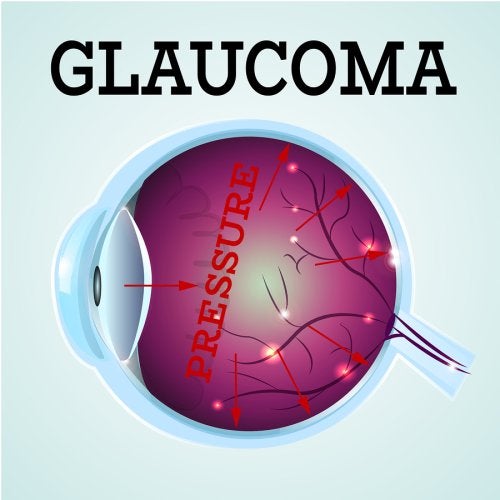
-
Spotlight on the Leading Cause of Vision Loss for Americans Over 60
When it comes to vision loss in seniors, age-related macular degeneration (AMD) is a common problem seen by eye doctors in Chicago . In developed countries, AMD is the leading cause of irreversible vision loss in older adults. If you are nearing age 60 and have concerns about your eye care, then continue reading to learn more about this condition.

The Basics of AMD
At the center of the retina is a small area called the macula, which provides pinpoint vision and enables you to see details clearly. In this way, the macula plays an important role in helping you read, drive, and recognize faces. Macular degeneration refers to the breakdown of the macula, and it’s common for people to develop this condition as a natural part of the aging process. For this reason, age-related macular degeneration is the most common type of macular problem.
The Causes of AMD
Macular degeneration can result from abnormal blood vessel growth beneath the retina. The formation of deposits under the retina, called drusen, are another cause. Studies indicate that genetic changes could be responsible for many cases of macular degeneration, and researchers suspect that the oxidative stress caused by the formation of free radicals in the body may also play a role in the development of AMD.
The Symptoms of AMD
AMD can affect your central vision by causing blurriness, distortion, or dark spots, and this condition rarely impacts the peripheral vision. As an example, someone with advanced AMD might be able to see the outer ring of numbers when looking at a clock, but not the hands in the middle.
The Treatment of AMD
At this time, there is no cure for macular degeneration. However, your eye doctor may recommend several options that can potentially reduce how AMD affects your eyesight and address your symptoms. Supplementation with certain vitamins has been shown to be beneficial, and your eye doctor may also recommend laser therapy, vision aids, or medications as part of your treatment.
